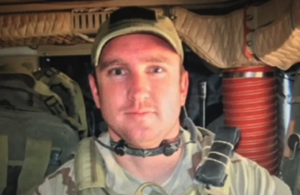In the field of military healthcare, service members rely on medical professionals to provide competent and efficient care, particularly during times of crisis. However, insufficient or inadequate training among military medical personnel can lead to unfortunate consequences. In some cases, poor medical training is directly linked to instances of medical malpractice. Military personnel, who have sacrificed much for their country, deserve to receive quality medical care. When they don’t, due to inadequately trained medical staff, it can lead to tragic outcomes that are both avoidable and preventable.
This blog explores how a lack of proper training contributes to military medical malpractice, the types of training deficiencies that often arise, and the specific consequences service members may face as a result.
Understanding Military Medical Malpractice
Military medical malpractice occurs when a healthcare provider fails to meet the standard of care expected, leading to harm or injury to a patient. In the context of military healthcare, this can affect active-duty personnel, veterans, and sometimes even their families. Military medical malpractice can stem from various causes, including misdiagnosis, surgical errors, and medication mistakes, but one of the most concerning factors is poor training.
The Critical Role of Training in Military Medicine
Training in military medicine is unique, requiring personnel to be equipped to handle a range of situations, from battlefield trauma to routine medical care. Military doctors, nurses, and support staff are often placed in high-pressure environments where they must make quick, accurate decisions. Proper training ensures that they can handle these challenges effectively.
Inadequate training, on the other hand, can leave military medical personnel unprepared. When military healthcare providers lack training in specific areas, it increases the risk of errors and malpractice, which can have dire consequences for those relying on their expertise.
How Poor Training Leads to Military Medical Malpractice
Lack of Specialized Knowledge
Military medical personnel must often operate in remote locations or under extreme conditions. Therefore, they need specialized knowledge that differs significantly from civilian medical practices. For example, battlefield medicine requires a unique skill set, including proficiency in emergency trauma care, which may not be adequately addressed during general medical training. When service members are treated by healthcare providers who are not well-versed in these specific medical needs, the risk of malpractice rises substantially.
Insufficient Hands-On Experience
Practical, hands-on experience is critical in military medical training. In a high-stakes environment, providers must act swiftly and confidently. Insufficient hands-on experience can lead to delays in decision-making or incorrect applications of treatment. This lack of experience often becomes evident in situations where military medical personnel face severe injuries or complex health issues. If the training programs do not provide enough simulated or real-life practice, the personnel may find themselves unprepared, leading to mistakes that could have serious repercussions.
Inadequate Training in New Technologies
The military frequently adopts new medical technologies to improve patient outcomes and streamline care. However, the rapid pace of technological advancements can sometimes leave training programs struggling to keep up. If military medical personnel do not receive adequate training on these new technologies, they may misuse or underutilize equipment, which can lead to errors in diagnosis, treatment, or patient management. Poorly trained personnel may not only fail to take advantage of these technologies but may also inadvertently harm patients by using them incorrectly.
Over-Reliance on Civilian Medical Training
Some military medical personnel receive their initial training in civilian medical schools before entering the military. While this provides a solid foundation, civilian training may not cover the specific challenges encountered in military settings. Civilian medical training often lacks components such as battlefield injury treatment or dealing with conditions specific to military life. This gap can result in military personnel being unprepared to handle the unique medical needs of service members, which can, in turn, lead to malpractice incidents.
Real-Life Consequences of Poor Medical Training on Service Members
Increased Risk of Injuries and Complications
When military medical personnel are not adequately trained, they may fail to diagnose or treat injuries accurately. Misdiagnosis can lead to improper treatment, resulting in further injury or complications. For example, if a service member suffers a traumatic brain injury, an undertrained medical provider might not recognize the signs promptly, leading to delayed treatment and potentially irreversible damage.
Reduced Trust in Military Healthcare
Service members depend on military healthcare for their medical needs, often placing their lives in the hands of these providers. When errors occur due to poor training, it can lead to a breakdown in trust between the military personnel and their healthcare providers. This erosion of trust can impact the willingness of service members to seek medical help in the future, which can have long-term health consequences.
Financial and Emotional Costs
The consequences of medical malpractice extend beyond the physical harm caused. Service members and their families may face significant financial burdens due to additional medical costs, lost wages, or even long-term care requirements. The emotional toll on both the victims and their families can be equally devastating, leading to feelings of betrayal, stress, and trauma.
How to Address the Training Deficiencies in Military Medical Care
Implementing Rigorous Training Programs
To reduce incidents of malpractice, the military needs to ensure that its training programs are rigorous and comprehensive. This means not only providing adequate training in general medical practices but also focusing on areas unique to military healthcare. By incorporating specialized modules on trauma care, battlefield medicine, and the latest medical technologies, military medical personnel can be better prepared for the challenges they may face.
Encouraging Continuous Education and Skill Updates
Given the rapid advancements in medical technology and practices, continuous education is essential. The military should establish ongoing training programs to keep personnel up-to-date with new techniques and equipment. By offering regular training updates, military healthcare providers can maintain their proficiency and deliver high-quality care.
Collaboration with Civilian Experts
In areas where the military lacks in-depth expertise, collaboration with civilian medical experts can help bridge the gap. For instance, working with specialists in trauma care or technology experts can provide military medical personnel with valuable insights and skills that might not be covered in standard military training.
Legal Recourse for Military Medical Malpractice Victims
Victims of military medical malpractice have the right to seek compensation for the harm caused to them due to inadequate training or medical errors. While pursuing legal action against the military can be challenging, there are legal avenues available for service members and their families. Consulting with experienced legal professionals who specialize in military malpractice cases can help victims navigate the complexities of these cases and work toward achieving fair compensation for their suffering.
Conclusion:
If you or a loved one has been affected by military medical malpractice, you don’t have to face it alone. At Khawam Ripka LLP, our dedicated team understands the unique challenges faced by military personnel and is committed to holding those responsible accountable. Our experienced attorneys can provide you with the guidance and support you need to seek justice and secure the compensation you deserve.
Contact us at Khawam Ripka LLP, today for a consultation to learn more about your rights and how we can help you take the next steps toward recovery

 Call Now- Open 24/7
Call Now- Open 24/7





